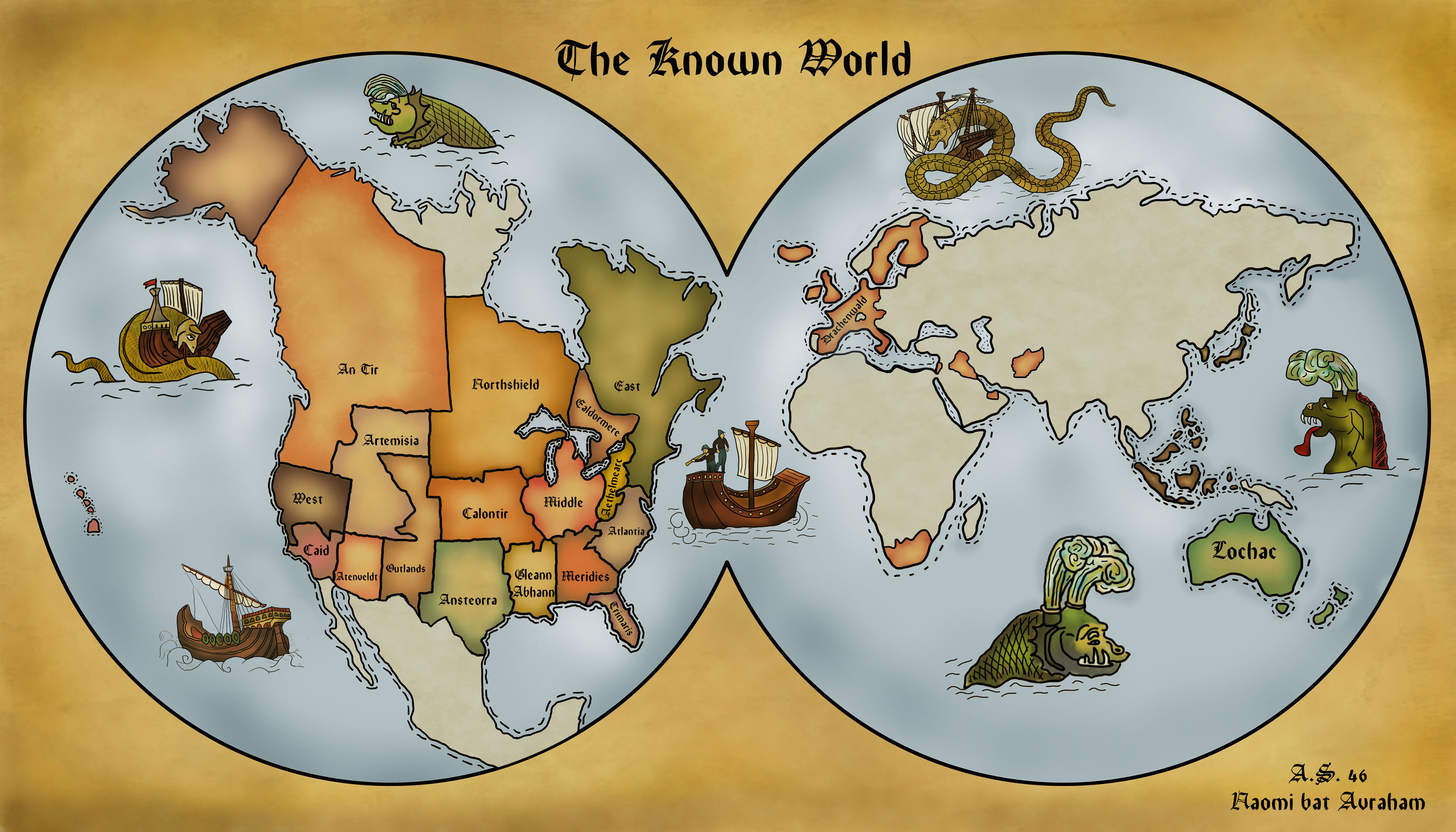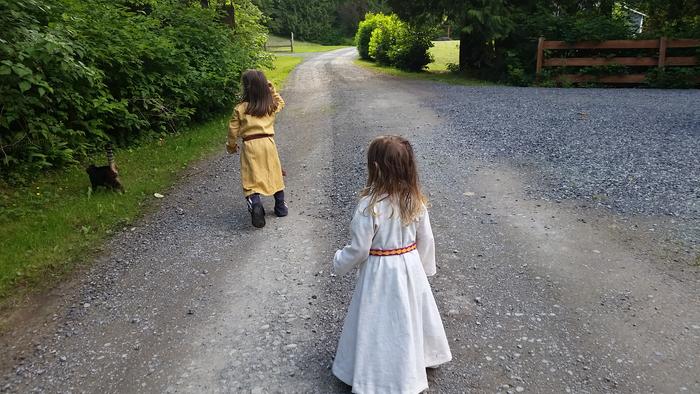There is a big SCA event in town this summer and I'm tempted to go. But it's daunting for newcomers because the organization has been around for years. There is a code of conduct, and you have to wear special clothes and... ug. So scary. I might not go. But there are also going to be vendors there and I would love to get some tools and supplies for
a historybounding project I'm working on. They usually have really high-quality stuff for sale at bigger SCA events, so it's worth going just for that.
As I'm making these decisions and researching more about this event, I got to thinking that 1) this is totally relevant to permaculture and 2) I might not be the only one asking these questions. So I start this thread as a way to get to know what the SCA is, why it's relevant to permaculture, and what do we need to know before we go to the first event?
And before we get started, my confession: it's not my first event. I have dabbled but haven't been for 10+ years, so I expect lots has changed (I know the research material available for garb certainly has) and a lot hasn't changed. But I thought it would be fun to go over it as if it was my first event for future readers.
What is it?
The Society for Creative Anachronism (SCA) is a great way to learn about the Middle Ages, mostly European history, but also globally.
The SCA is a non-profit worldwide organization with over 60,000 people who re-create the Middle Ages from 600 to 1600 AD through songs, dance, clothing, weaving, combat, archery, metalworking and much more. Honour, chivalry and courtly love are valued highly in our society. We bring our knowledge, skills and love of history together in a safe and fun environment for all to enjoy.
from here
and here you can find more about the history of the SCA
What's the SCA got to do with Permaculture?
Why is this interesting to permaculture? Well, the skills and techniques used in SCA events are sustainable versions of what we do today. Want to learn about sustainable clothing? There's a class on how to spin yarn and classes on how to weave and sew. Want to learn how to cook without modern gas or electricity? Heck, there are even combat courses if that's your thing (the local group is so good at this, they have helped train local law enforcement in riot control). Want to know how to make a waterproof tent out of 100% natural materials, build a house without nails, blacksmithing, brew your own mead, or
figuring out the impossible requirements for making hard sole shoes without modern glues for your PEP badge (spoiler: it's entirely possible)?
What I find most interesting about the SCA is that it's not so much about recreating history, but about learning from history by experiencing aspects of it in a safe space.
What if I want to go to a thing?
One of the neat things about the SCA is that each group has a person or committee that is dedicated to helping new people find their way. It's suggested that you reach out to them before the event. But even that is a bit scary. What I found worked best is to casually mention in my circle that "hey, I learned about this neat thing called SCA ..." and it turns out that a whole bunch of my friends used to 'play'. I can usually talk one (or many) into going to an event so I can just tag along with their circle. But even if there aren't any friends going, the people at these events are hugely wonderful towards new people.
I have noticed that my local barony's website is woefully abandoned in favour of facebook. We have events that have come and gone that still have a TBA page on the website. That's one of the big reasons why I fell away from the local SCA - I don't facebook. So if you aren't big into the Meta-verse, then keeping in touch with your local chatelaine (person who helps new people find their feet) is a big help.
There's also a book called the Known World Handbook which is a great introduction to all things SCA (and also a great resource for someone wanting to learn about the skills and techniques without actually going to a thing). Everything you need is there to learn how to make your own garb.
What to wear
And this is the really important thing it turns out. The thing that EVERYONE feels necessary to go on and on about when they find out you are new. The story of the person that showed up in inappropriate clothing.
We don't have to wear 100% historically accurate clothing, but we need to make some sort of effort to fit in to the ambience. They call it Garb and if you don't have any, you can often buy or rent clothing at an event. This is different from a costume in that it's practical clothing, just from a different time period.
It's basically about not killing the vibe. A bit like Larping, a bit like cosplay, but with a longer tradition and more, um... I don't even know how to describe it.
If you enjoy the event and want to start going to more, you might build a persona. Choose a time period (it could be one year or it could be a range) and start to build clothes and gear based on that. But it's easy to start with the really basic generic 'middle ages' garb and build on that slowly. After the basic kirtle or t-tunic, the next thing to get is a belt and a wool blanket. It's incredibly versatile and since many events happen outdoors, having a giant blanket that can be a skirt or a cloak or a shelter or something to sit on, or whatever you need helps make the events more enjoyable.
I don't fit in my old garb anymore and my kirtle certainly won't be done in time. So I'll go for
Historically Adequate rather than historically accurate.
What to do
As much or as little as you like. I'm an introvert and I find it helps to have a bit of handcrafting on the go while at an event. Something portable like hand sewing. But nothing too modern like knitting.
Something I noticed is a big thing, at least in our local group, is that people are always ready to offer help. But they OFFER help. You can say yes, and then get help. Or, you can also say no, and they don't help. It's not like most social settings where people 'help' without asking (and their help usually involves quickly undoing the thing I just took ages to do and then get huffy when I ask them to undo their help)
Anyway, that's a n00b's first impression of the SCA. I'm sure I missed loads and hopefully, people can chime in with questions and if there is anyone here in the SCA, maybe you can share your experience.

 9
9











 5
5






 3
3





 5
5







 4
4











 2
2




 5
5




 4
4




 2
2




 2
2




 2
2




 2
2












 6
6












